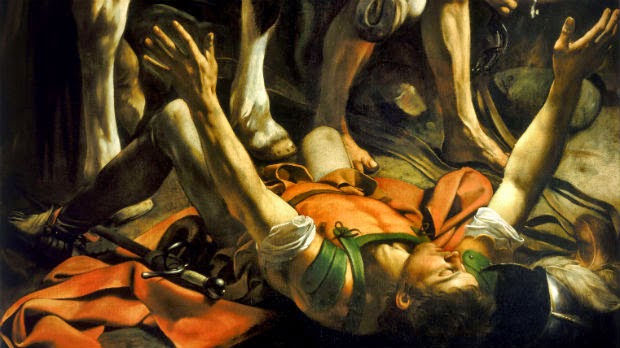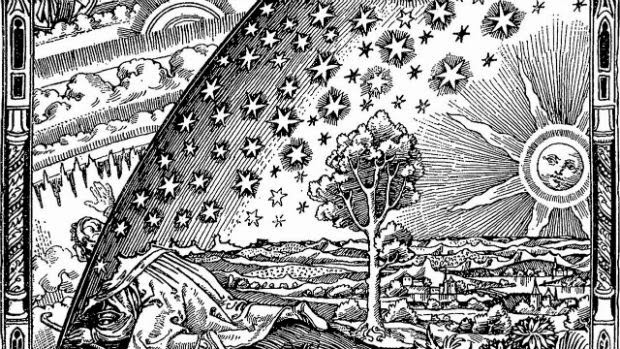Progressive Revelation Among the Mormons
Lincoln Cannon
20 March 2014 (updated 3 January 2026)

A friend, who considers me a progressive Mormon, shared with me an article by BYU political science professor Ralph Hancock on “Progressivism Among the Mormons.” In the article, Ralph observes that progressive Mormons appear to interpret the doctrine of continuing revelation as a politically progressive mandate. And he expresses his disagreement with that interpretation.
As someone who appears to qualify as a progressive Mormon, at least according to my friend and probably according to Ralph, I disagree with his characterization of my interpretation of doctrine. Before I explain my disagreement, I’ll explain how I think I qualify as a progressive Mormon according to Ralph, to strengthen the relevance of the disagreement. However, there’s some room for uncertainty because his characterization is not always clear.
For example, Ralph begins by making it sound like progressive Mormons are everywhere. After alluding to the need to persuade others to take seriously the influence of progressive Mormons, he suggests that references to or examples of progressives are impossible to miss when reading any news about or blogs from Mormons. And yet he ends by asserting that “Mormon progressivism is still quite a marginal movement.” Maybe I understand “marginal” differently than Ralph, but if progressive Mormon influence is as pervasive as he makes it sound then I wouldn’t use “marginal” to describe it.
In any case, there are some specific ideas to which he appeals as characteristic of progressive Mormons. And most of them seem to apply to me. Judging from them, it appears that Ralph considers progressive Mormons to be primarily social progressives, and maybe or maybe not economic progressives or bioprogressives or otherwise. Here are the characteristics:
“The prophets were wrong about blacks and the priesthood; they might be wrong about women and the priesthood or homosexual marriage; obviously it would be a good thing if they were wrong, because (need it even be stated, much less argued?) more equality (progressively defined) is always better.”
Our history books record opinions about blacks and the priesthood, expressed by leaders of the LDS Church, who we sustain as prophets, that are admittedly inaccurate. It seems I would have to lie (or forget) to escape being a Mormon progressive on this count.
Various leaders of the Church have claimed that they are fallible (as do the scriptures), that they could be wrong, and that we have a responsibility to confirm their claims. I take this to mean they could be wrong about anything, including women and the priesthood or homosexual marriage. Here, it seems I’d have to reject the law of non-contradiction to escape being a Mormon progressive.
Mormon scriptures explicitly and repeatedly (albeit somewhat inconsistently) advocate economic and social equality in at least some sense. Because this lends itself to interpretive flexibility, and because Ralph characterizes Mormon liberals as interested in superlative equality, I might not fully qualify here. However, I certainly feel that my religion mandates opposition to racism, sexism, and legal discrimination based on homosexual identity, so it would seem that I qualify to at least some extent.
There’s one more idea that Ralph implies to be characteristic of progressive Mormons. And this one is harder to assess. He contrasts himself from progressives by appealing to his belief that “Jesus Christ in fact guides his Church” and that “there is no reason to think he guides it in a ‘progressive’ direction.”
Implicit in this is the suggestion that progressives don’t really believe Jesus Christ guides the Church. If Ralph intends to imply that progressives believe Jesus is not personally micromanaging the Church then I qualify. If he intends to imply that progressives believe Jesus doesn’t guide the Church in any way, I don’t qualify.
To be clear, I think Jesus’ teachings, as recorded in scripture and interpreted through inspiration, are the primary way that Jesus guides the Church. Maybe Ralph thinks Jesus has regular face to face discussions with Church leaders. I don’t, in part because some leaders suggest they don’t. And that may make me a progressive Mormon too.
Finally, now that I’ve established my credentials as a progressive Mormon by Ralph’s standards, I’ll explain why I disagree with his characterization of my interpretation of the doctrine of continuing revelation.
To begin, join me in a thought experiment. Absent divine guidance, how would you expect governance of an ecclesiastical gerontocracy to express itself? Generally as governance in the LDS Church actually does express itself?
Please know that I’m not intending to suggest that Church leaders are never inspired. To the contrary, I trust they are. And sometimes I’m as confident that they’re inspired as I am that inspiration exists in any meaningful way, because I’ve been inspired by them.
However, I will suggest that all of our inspiration, indeed all of our sensation, whether we be leaders or otherwise, is always filtered through anatomical constraints, reflecting individual, communal, and environmental constraints. We might call this bias, which isn’t necessarily a bad thing. But it might express itself in bad ways. And we can benefit from trying to be aware of and account for it.
In any case, we’re all biased, including our leaders. And I think we can observe this bias in the generally predictable governance of the Church – note the emphasis on “generally.”
Now I’m certainly qualifying as a progressive Mormon, I suppose. But join me in another thought experiment. Absent divine guidance, how would you expect young lay members of a religious institution to express themselves? Generally as young members of the LDS Church actually express themselves?
Here’s my point. Perhaps neither the conservative in itself nor the progressive in itself demonstrates expectations that are uniquely consonant with revelation.
Maybe each is simply filling a role, hopefully for better and sometimes for worse, as we work together both to learn and to retain, to progress and to conserve. Maybe both are necessary aspects of participating in the work of God and becoming like God. Maybe even minimal revelation is essential to enabling us to mature in our own capacities, to become genuinely creative and compassionate in our own right.
Whatever the case may be, I think revelation, to maintain its most meaningful sense as a descriptor for a category of experience, must ultimately transcend expectations and thus cannot rightly be categorized as either conservative or progressive. At its heights, beyond what we might distinguish as inspiration, revelation must be unusual. Most of the time, we must operate without extraordinary revelation, as President Hinckley seems to have suggested. Most of the time, we’re going to be predictable as we learn and retain for ourselves.
Revelation shatters paradigms. Revelation reveals God. When that happens, we become undone, all of us, conservative and progressive.
I suspect Ralph would agree with that. Does that make me a conservative Mormon?


